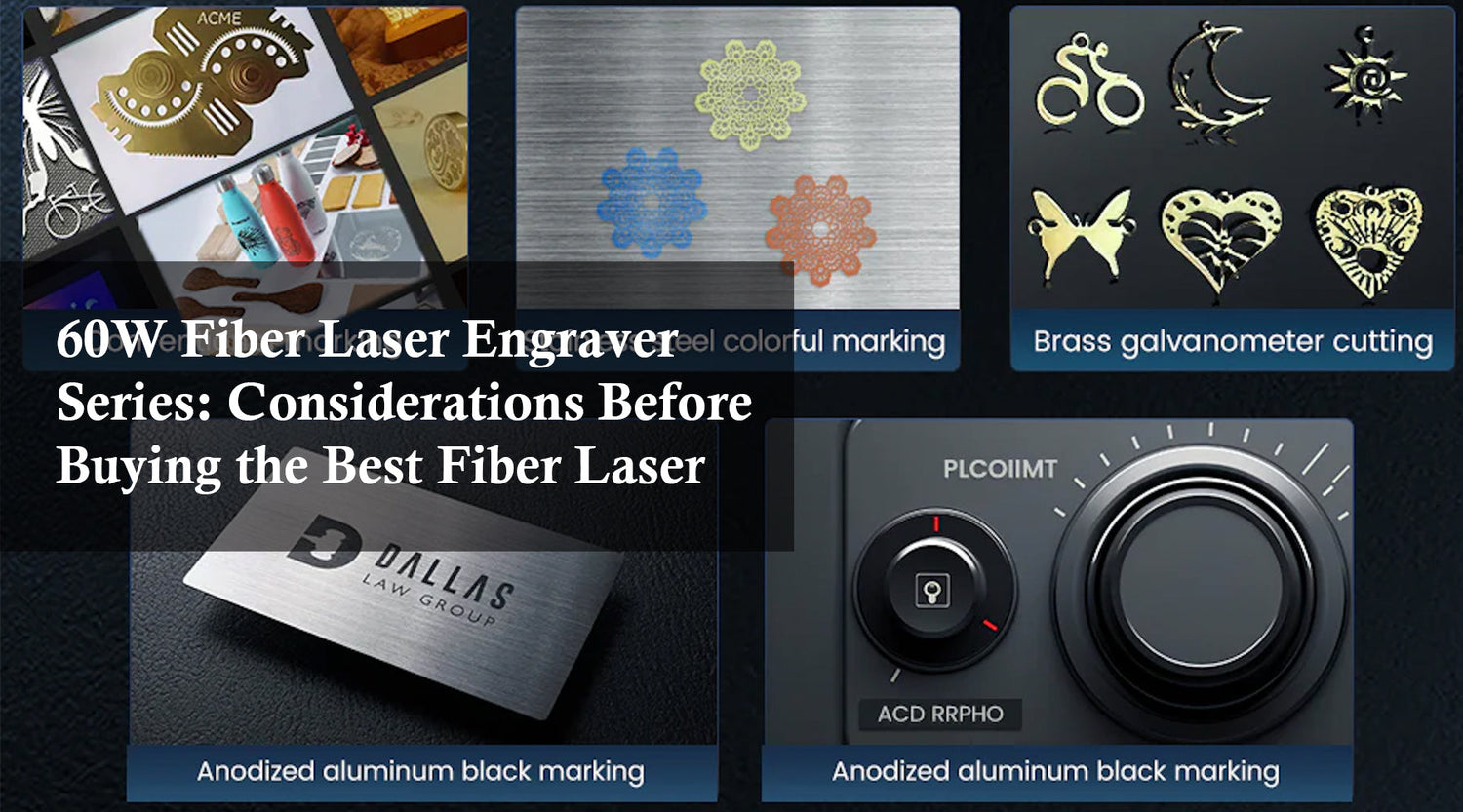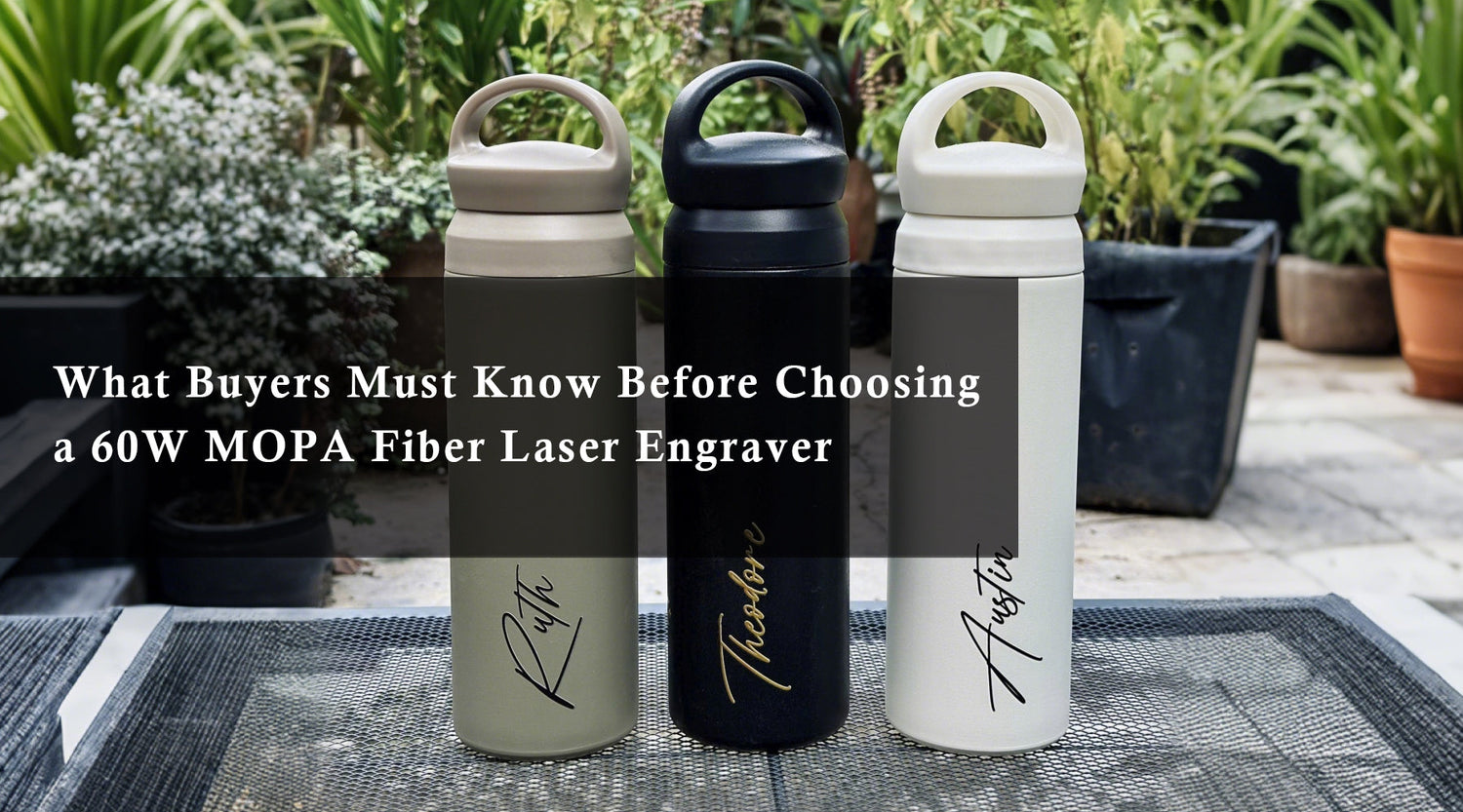When it comes to fiber laser technologies, JPT and Raycus are two well-known names that frequently come up. Both brands provide advanced laser sources ideal for precision cutting, marking, engraving, and welding. Many beginners ask: “Is JPT better than Raycus?” or “Which is the best laser engraver for beginners?”
This guide compares their performance, reliability, and features to help you choose the ideal laser source for your business or hobby projects.
Understanding JPT and Raycus Laser Sources
Both JPT and Raycus specialize in fiber lasers for industrial and creative applications:
-
JPT Laser – Continuous Wave (CW) fiber lasers designed for precision, stability, and energy efficiency.
-
Raycus Laser – Pulsed fiber lasers providing high peak power, cost-effectiveness, and durability for industrial tasks.
JPT Laser Advantages
Monport GI 60W Integrated MOPA Fiber Laser
JPT lasers are highly regarded for:
-
Superior Beam Quality: Produces precise, uniform beams for detailed and accurate applications.
-
Unwavering Stability: Maintains consistent performance for long or continuous production runs.
-
Energy Efficiency: Optimizes power consumption, lowering operating costs over time.
-
Versatility: Capable of engraving a wide range of materials, including metals, plastics, and ceramics.
Raycus Laser Advantages
Raycus lasers specialize in high-peak power for fast and deep engraving. Key benefits include:
-
High Peak Power: Ideal for fast marking and deep engraving on metals.
-
Cost-Effective: Often more affordable for small businesses and startups.
-
Durability: Built to withstand harsh environments with minimal maintenance.
-
Customization Options: Users can adjust pulse durations and beam quality for specific needs.
Achieve Precision with Monport Black Laser Marking Spray
For beginners and hobbyists, Monport Black Laser Marking Spray provides:
-
High-contrast, permanent markings on metals like aluminum, stainless steel, and brass.
-
Designed for CO₂ laser machines 25W and above.
-
Quick-dry formula for faster workflow; rinse to reveal sharp, dark markings.
-
Ideal for jewelry, industrial tools, and personalized gifts.
Use code VIPFree or BESTMP10 at checkout for exclusive discounts.
Why JPT Often Prevails for Beginners
While both JPT and Raycus are strong choices, JPT is often recommended for those starting with laser engraving:
-
Superior Beam Quality: Enables precise, detailed applications across materials.
-
Unmatched Stability: Consistent performance, even during long runs.
-
Energy Efficiency: Reduces operating costs with optimized power usage.
-
Versatility: Works on metals, plastics, ceramics, and more, suitable for various projects.
For beginner-friendly laser engraving, JPT-based systems often provide a smoother learning curve and reliable results.
Frequently Asked Questions (FAQs)
Q1: Which brand is better for beginners: JPT or Raycus?
A1: JPT is generally preferred due to superior beam quality, stability, and ease of use.
Q2: Is JPT more expensive than Raycus?
A2: Slightly, but JPT offers more advanced performance and versatility.
Q3: Can I use Monport Black Laser Marking Spray with any machine?
A3: It works best with CO₂ lasers 25W and above.
Q4: What materials can I engrave with these lasers?
A4: Metals, plastics, ceramics, and more; JPT provides higher precision for detailed work.
Q5: Where can I get discounts for laser engraving equipment?
A5: Shop at Monport using BESTMP10 for exclusive deals.
Conclusion
Both JPT and Raycus lasers are reputable, high-quality systems.
-
JPT: Ideal for beginners seeking precision, stability, and versatility.
-
Raycus: Great for cost-conscious users who need durability and high peak power.
The final choice depends on your application needs, budget, and preference for precision versus affordability.
Unlock Big Savings at Monport Laser! Use BESTMP10 at checkout for exclusive discounts. Start your laser engraving journey today with reliable beginner-friendly solutions.
Read More: Exploring JPT MOPA Fiber Lasers for DIY Metal Engraving









